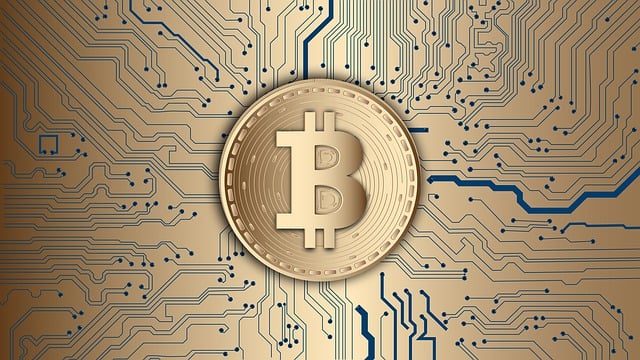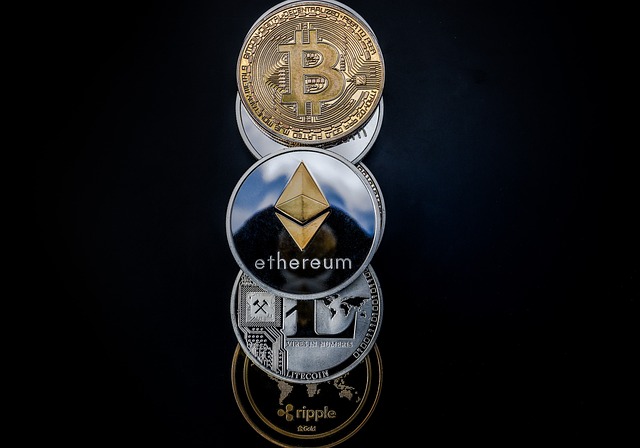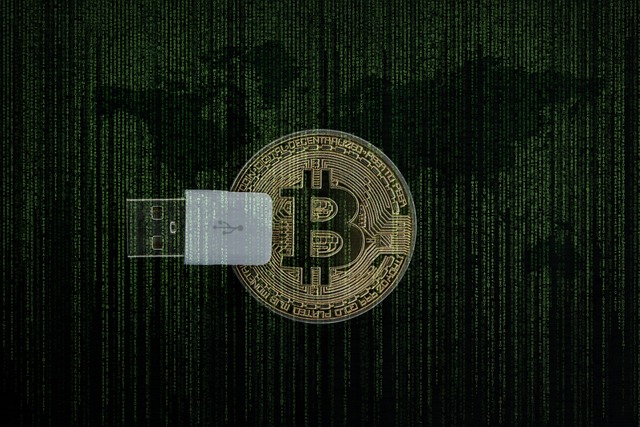Decentralized Finance (DeFi) disrupts traditional banking with blockchain-based peer-to-peer services, offering enhanced accessibility and control but facing significant regulatory challenges. The absence of central authorities complicates enforcing consumer protection, AML, and KYC measures, as DeFi's global expansion requires innovative regulatory frameworks. These challenges include defining "default" in automated smart contracts, navigating cross-border implications, and maintaining investor protections amidst rapid technological advancements. Balancing these concerns with DeFi's stability is crucial for its long-term sustainability and potential to revolutionize financial services through collaboration between platforms and regulators.
In the dynamic realm of Decentralized Finance (DeFi), the concept of default poses unique regulatory challenges. As DeFi disrupts traditional financial systems, understanding its promise and rise is paramount. This article navigates the intricate landscape, exploring the impact of default on users, investors, and the industry. We delve into emerging solutions and reforms as we consider the future of DeFi, highlighting the urgent need for regulatory clarity amidst innovation.
- Understanding DeFi and its Promise
- The Rise of Decentralized Finance: A Revolution in Making
- Regulatory Landscape: Catching Up to Innovation
- Challenges in Defining Default in DeFi
- Impact on Users, Investors, and the Industry
- Navigating the Future: Potential Solutions and Reforms
Understanding DeFi and its Promise

Decentralized finance, or DeFi, represents a revolutionary approach to traditional financial systems, promising greater accessibility, transparency, and control for users. It aims to recreate various financial instruments and services, such as lending, borrowing, trading, and insurance, on a blockchain network, eliminating the need for intermediaries like banks. This technology has gained significant traction due to its potential to democratize finance, offer higher interest rates, and provide users with more autonomy over their assets.
However, as DeFi continues to evolve and attract global attention, it faces substantial regulatory challenges. The decentralized nature of DeFi platforms makes it difficult for traditional regulatory frameworks to adapt effectively. Issues like consumer protection, anti-money laundering (AML), and know-your-customer (KYC) procedures become complex in a blockchain environment where transactions are pseudonymous and users can operate anonymously. Regulators must navigate these complexities while ensuring the stability and integrity of the DeFi ecosystem and protecting investors from potential risks.
The Rise of Decentralized Finance: A Revolution in Making

The rise of Decentralized Finance (DeFi) has shaken up the traditional financial landscape, presenting a revolutionary approach to money and investment. This innovative system leverages blockchain technology to create a peer-to-peer network, eliminating the need for intermediaries like banks. DeFi offers users direct control over their funds, enabling them to borrow, lend, trade, and earn interest without regulatory oversight or geographical barriers. The decentralized nature of this finance system promises increased financial inclusion and accessibility worldwide.
However, with great innovation comes complex regulatory challenges in DeFi. As the traditional financial system moves towards a more transparent and open-source model, regulators grapple with issues such as consumer protection, anti-money laundering (AML), and know your customer (KYC) procedures. The decentralized and borderless nature of blockchain technology complicates these regulations, requiring new frameworks to adapt to this evolving digital economy. Addressing these challenges is crucial for DeFi’s long-term sustainability and its potential to revolutionize the way we interact with financial services.
Regulatory Landscape: Catching Up to Innovation

The world of decentralized finance (DeFi) has witnessed unprecedented growth and innovation, offering a new financial ecosystem free from traditional intermediaries. However, this rapid evolution has also presented significant regulatory challenges in DeFi. As DeFi platforms and applications continue to disrupt the status quo, regulators worldwide are playing catch-up to ensure consumer protection and market stability.
Regulatory bodies face complex tasks when it comes to governing DeFi. The decentralized nature of these technologies makes traditional oversight mechanisms less effective. Cryptocurrencies, smart contracts, and distributed ledgers introduce novel risks and opportunities that require tailored approaches. Regulatory challenges in DeFi include understanding the intricate relationships between different protocols, assessing cross-border implications, and keeping pace with rapidly changing technological advancements while maintaining robust investor protections.
Challenges in Defining Default in DeFi

Defining “default” in the decentralized finance (DeFi) space poses unique challenges, particularly when compared to traditional financial systems. In DeFi, transactions and agreements are executed through smart contracts, which automatically enforce rules programmed by developers. However, this very automation can create complexities when determining what constitutes a default. Regulatory uncertainty adds another layer of complexity. Traditional definitions of default often rely on legal frameworks and regulatory oversight, which are still in their nascent stages for DeFi.
The decentralized nature of blockchain technology makes it difficult to apply centralized authority or legal jurisdiction consistently. As DeFi continues to evolve rapidly, regulatory bodies worldwide struggle to keep pace with the development of new protocols and financial products. This gap between innovation and regulation creates challenges in establishing clear guidelines on what triggers a default scenario within DeFi platforms.
Impact on Users, Investors, and the Industry

The impact of default in decentralized finance (DeFi) extends far beyond individual users, investors, and even the industry itself. For users, a DeFi protocol defaulting can result in locked funds, reduced returns, or even total loss depending on the circumstances. This loss of trust can lead to a decrease in user adoption and engagement with DeFi platforms, hindering growth and innovation within the space.
Investor confidence is similarly affected. Default events can trigger significant market volatility, leading to substantial financial losses for investors. Moreover, these incidents underscore the ongoing Regulatory challenges in DeFi, as traditional financial regulators struggle to keep pace with the rapid evolution of decentralized protocols. This uncertainty creates a barrier to institutional investment and hinders the industry’s ability to achieve mainstream adoption.
Navigating the Future: Potential Solutions and Reforms

As we look ahead, navigating the future of default in the decentralized finance (DeFi) space presents a complex landscape. One of the primary areas that require attention is addressing the growing regulatory challenges in DeFi. With the rapid evolution of blockchain technology and the increasing adoption of decentralized applications, regulators worldwide are struggling to keep pace with the dynamic nature of this sector. Striking a balance between fostering innovation and ensuring consumer protection is a delicate task.
To mitigate potential risks, several reforms could be implemented. Enhancing transparency through standardized data reporting and improving access to credible information will empower users to make informed decisions. Additionally, strengthening collaboration between DeFi platforms and regulatory bodies can facilitate the development of clear guidelines and standards, fostering a more secure environment for participants while encouraging further adoption.
The rapid evolution of Decentralized Finance (DeFi) presents both remarkable opportunities and complex regulatory challenges. As DeFi continues to reshape financial services, navigating the intricate landscape of default becomes paramount. By addressing definitional gaps and fostering collaboration between innovators, regulators, and stakeholders, the industry can mitigate risks while unlocking DeFi’s full potential. This balanced approach is crucial for ensuring consumer protection, promoting trust, and driving sustainable growth in this dynamic sector.
